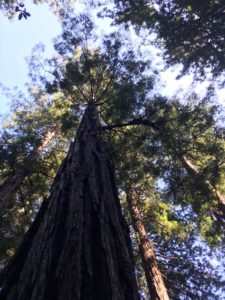Standing in the middle of Times Square for the first time (after seeing my first Broadway Show), I easily lost track of time. It was around 9 or 10:00 at night, but it could easily be mistaken for the mid afternoon. Lights surrounded the buildings, surrounded the roads, and surrounded me. It was miraculous, seeing the power of light, but also very overwhelming. The sky was blurry, blanketed by the illusion of day.
There was supposed to be a meteor shower tonight around 8pm. It’s now almost 10:00 and I gave up watching. Where I live isn’t anything like Times Square, yet I still could not see a single meteor in the night sky. Even the brightness of the stars that are still visible is muted, thanks to light pollution from streetlights, buildings and more. Macauley states, “the sky appears less like an ornate vaulted dome where the stars blink and shine and more like a flattened electronic screen on which we project anthropogenic lights and advertisements” (p. 272). Our technological advancements and industrialization has made the natural world look less like the natural world and more like a fake projection of nature on a electronic screen. What once held so much beauty and value is now worn out and not appreciated because of a mindless obsession with technology.
Before the pandemic hit I used to go to a place called Arrowhead Lake in Pennsylvania. I would live in a house by a lake and when I knew a meteor shower was predicted for a certain night, I would take my paddle board and paddle out to the middle of the lake, surrounded by all darkness except for the stars. I’d watch the stars and listen to the croaks of frogs and splashes of fish and rustling in the forest that surrounded me. With the pandemic it’s especially hard to take a deep breath. I crave the peace that I used to feel in these moments at the lake and know that as soon this pandemic is over I’ll travel back to this tranquil, device-less place with my family and appreciate it that much more.

